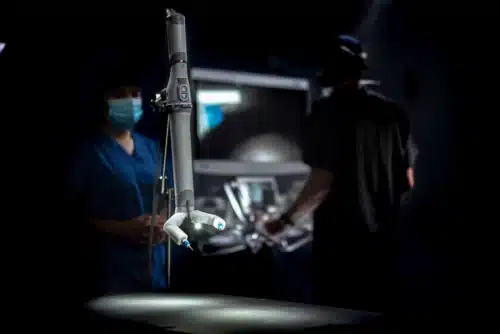A surgery robot designed to perform operations remotely is being sent to the International Space Station(ISS).
Medical technology and space technology together are interpreted in several ways by tech enthusiasts and even the tech giants. Some science fiction films like ‘Elysium’ have presented the idea of advanced medical technology that can cure any disease and are located in space stations. These interpretations are a part of the progress we are making towards implementing the advanced technology to our life.

Developers at Virtual Incision are all set to launch their interpretation in the form of a surgical robot that can be remotely operated to perform operations on astronauts. The tiny surgical robot is known as MIRA, short for ’Miniaturized In vivo Robotic Assistant.” The company is currently working on developing MIRA to fit inside a space station experiment locker, as well as exhaustively testing it to make sure it’s robust enough to survive a space launch and that its systems will continue to perform as anticipated in space.
Virtual Incision hopes that its surgical robot can allow experienced doctors to carry out operations in space when required. MIRA can be inserted through a small incision, enabling doctors to perform abdominal surgery in a minimally invasive manner.
“Nasa has been a long-term supporter of this research and, as a culmination of that effort, our robot will have a chance to fly on the International Space Station,” said MIRA developer Shane Farritor, professor of engineering at the University of Nebraska.
The device is being programmed to work autonomously to conserve space station communications bandwidth and to minimize the amount of time astronauts spend with the experiment. Initially at the space station, MIRA will work autonomously, without any guidance from the doctors.
“With its drape- and dock-free design and portability, MIRA is quick to set up, clean, and move in between cases, potentially enabling an increased robotic-assisted surgery caseload.” This can not only help with the space program but also tends to boost the medical technology around the globe with its application.







